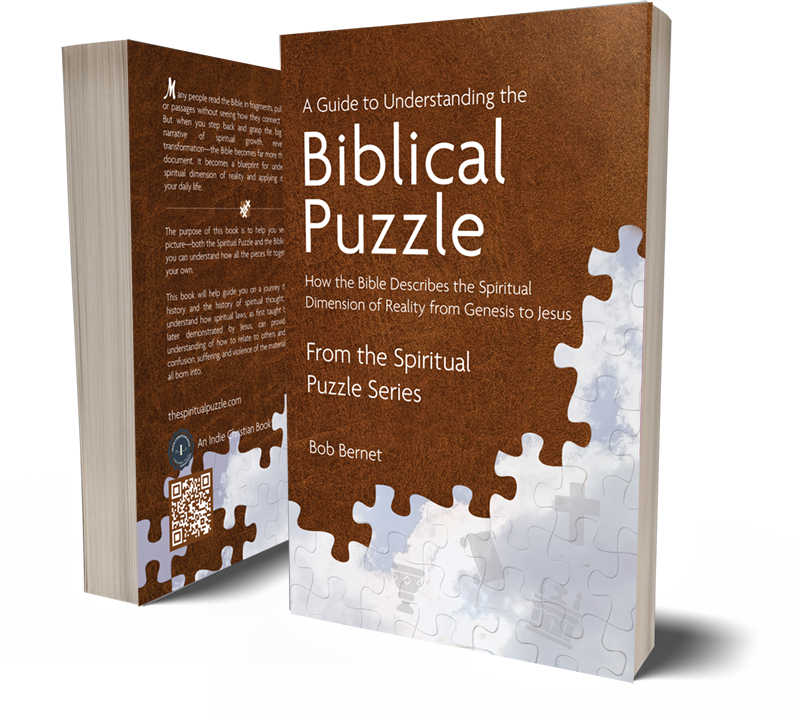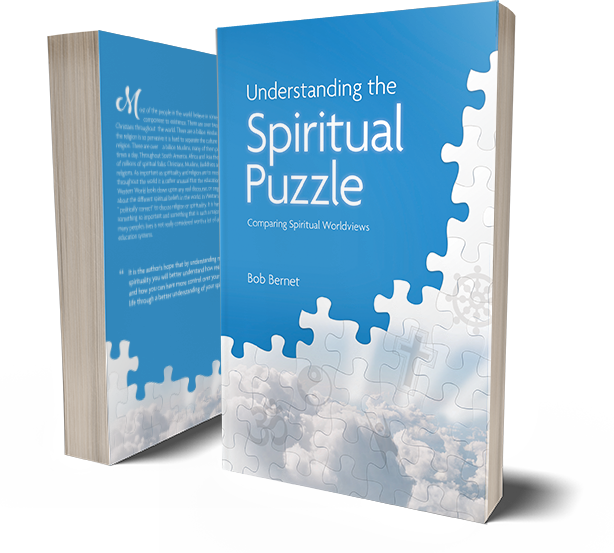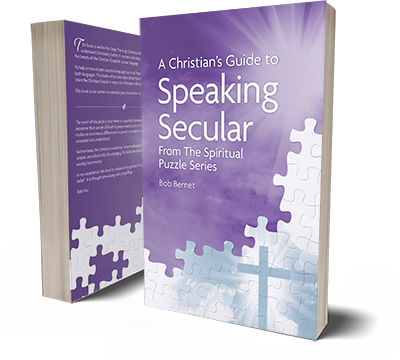The Books
Whether you are interested in comparing spiritual worldviews like Buddhism, Hinduism, Secular Humanism, and Islam, or a deep understanding of Christianity, or an academic discussion on spirituality without religion, The Spiritual Puzzle Project has a book for you.
A Guide to Understanding the Biblical Puzzle
How the Bible Describes the Spiritual Dimension of Reality
Many people read the Bible in fragments, pulling out verses or passages without seeing how they connect to the whole. But when you step back and grasp the big picture—the narrative of spiritual growth, revelation, and transformation—the Bible becomes far more than a historical document. It becomes a blueprint for understanding the spiritual dimension of reality and applying its wisdom to your daily life.
The purpose of this book is to help you see that bigger picture—both the Spiritual Puzzle and the Biblical Puzzle—so you can understand how all the pieces fit together, including your own.
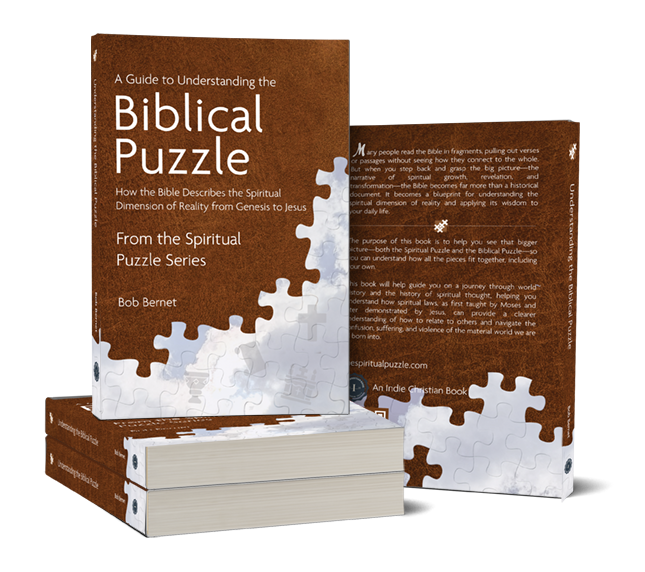
This book will help guide you on a journey through world history and the history of spiritual thought, helping you understand how spiritual laws, as first taught by Moses and later demonstrated by Jesus, can provide a clearer understanding of how to relate to others and navigate the confusion, suffering, and violence of the material world we are all born into.
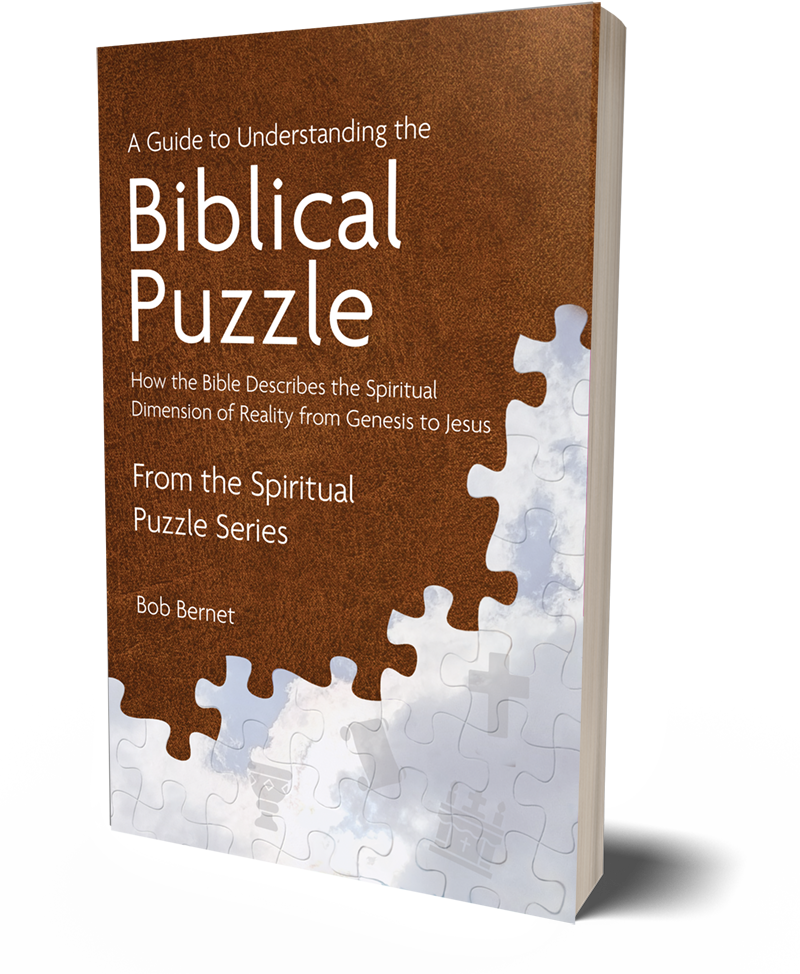
Table of Contents
Author’s Note
Introduction
- The Search for New Landscapes Leads to a Search for New Eyes
- Getting Started – Your Worldview, Your Story
- Science and Spirituality
- Why Study the Biblical Worldview?
- The Setting: Ancient Gods and Cultures Around Abraham and Israel
- The Revolutionary Idea of Humans Made in the Image of God
- Genesis1 – The Spiritual Creation
- Genesis2 – The Unity of All Living Things
- The Separation from God and Its Consequences
- The Foundation – From Creation to Kings
- The Kingdom Era – Israel’s Rise and Fall
- The Prophetic Voice – Warning and Redemption
- The Intertestamental Period – Or The Greek Miracle
- Jesus: The Fulfillment of Prophecy
- Jesus: Revolutionary Social Teachings
- Jesus: Spiritual Transformation and Legacy
- Resurrection, Redemption, Holy Spirit, New Covenant, and The Church
- The Deep Mystery and The Great Paradox
- Investing in Eternity – An Eternal Worldview
Notes
Acknowledgments
Understanding the Spiritual Puzzle
Comparing Spiritual Worldviews
Most of the people in the world believe in some sort of spiritual component to existence. There are over two Billion Christians throughout the world. There are a billion Hindus in India where the religion is so pervasive it is hard to separate the culture from the religion. There are over a billion Muslims, many of them pray multiple times a day. Throughout South America, Africa and Asia there are hundreds of millions of spiritual folks: Christians, Muslims, Buddhists and many other religions. As important as spirituality and religion are to most people throughout the world it is rather unusual that the education system in the Western World looks down upon any real discourse, or ongoing education about the different spiritual beliefs in the world. In Western culture, it is not ” politically correct” to discuss religion or spirituality. Understanding the Spiritual Puzzle gives an overview of all major Spiritual and non-spiritual worldviews presented in an academic approach.
The author believes that most people have their own concept of spirituality, and that these ideas can affect everything they do. The goal of this book is to help you understand the “big picture” of spirituality, and then to use this understanding to help you activate your spiritual life in the physical world. This book was written to help you understand and think about many different opinions of what spirituality is and how it affects everyday life. It is the author’s hope that by understanding more about spirituality you will better understand how reality works and how you can have more control over your physical life through a better understanding of your spiritual life.

If you do not have the picture on the box you are trying to put your life together by matching colors and shapes without a real understanding of how everything fits together.
This study starts by dividing all types of thoughts, or worldviews, into the spiritual and non- spiritual. The book discusses non- spiritual thought first, followed by spiritual worldviews and religions. Spiritual thought is divided into three categories. 1. Historical based religions of Judaism, Christianity, and Islam. 2. Eastern religions like Hinduism and Buddhism. 3. Non secular spirituality of all forms such as secular humanism and naturalism.
The author believes that your understanding of spirituality or non- spirituality influences your thoughts and actions much more than most of us realize, so it is important for everyone to try and better understand the big picture of spirituality and how it affects every one of us in our daily lives.
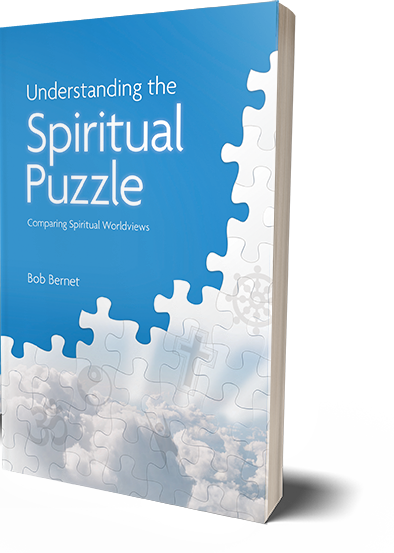
Trying to understand reality without a big picture understanding of spirituality is like trying to put together a puzzle without seeing the picture on the box.
Table of Contents
Introduction
- What is your worldview
- Understanding the non-spiritual worldview
- Darwinism
- Secular Humanism & Naturalism
- Difficulties of non-spiritual belief
- The spiritual worldview
- Hinduism
- Buddhism
- New Age Spirituality
- Islam
- Judaism
- Christianity
- Jesus
- Forgiveness
- Free Will, Good/Evil, Salvation
- Faith, Prayer, Resurrection
- Summary –Activate your spirit
A Christian’s Guide to Speaking Secular
To teach someone a second language the teacher must have command of both languages. To teach someone about the depth and beauty of the Christian message it helps to be able to explain it in the secular language most people understand.”
The book translates deep spiritual insights from the Gospels into common language through historical, psychological and Biblical references. A Christian’s Guide describes the Christian message as: “The history of the spiritual consciousness development of the human race”. It analyzes how Judeo- Christian beliefs have impacted the spiritual consciousness development of each individual, as well as the spiritual consciousness of the culture as a group.
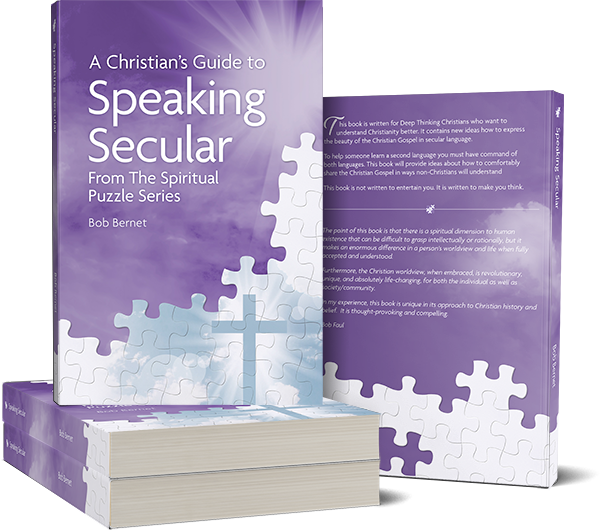
A big problem with trying to help non-Christians learn about Christianity is that many Christians struggle with knowing how to express the true depth and beauty of the Christian message. Most people are not comfortable sharing the good news for many different reasons.
The first goal of this book is to help Christians and non-Christians understand the remarkable and beautiful spiritually uplifting message of Christianity. The second goal is to help Christians learn how to explain the good news in familiar language that is comfortable for non-Christians to understand. If you are a non-Christian and you want to understand the spiritual basics of Christianity in a comfortable way you have not heard before, this book should help. This book is not intended to be a scholarly work. It is intended to be an easy-to-understand description of Christianity with suggestions on how to help non-Christians understand the beauty in common, non-religious, non-threatening language.
This book will explain why I translate the good news of the gospel into secular language by calling it: The history of the spiritual consciousness development of the human race.
The Bible tells a story that is very deep and complex in some ways, but very simple in other ways. Part of the story is about God helping humanity realize what I call The Great Paradox of Human Existence.
A Christian’s Guide to Speaking Secular helps you understand the basic principles of Christianity, and how to translate those principles for non-Christians. Understanding the Spiritual Puzzle helps you compare and contrast those principles to other spiritual worldviews.
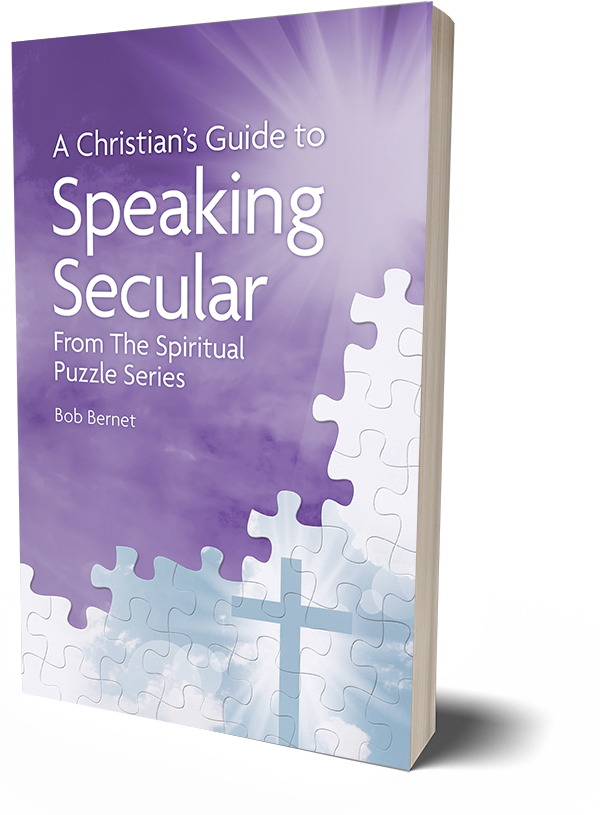
Table of Contents
The Psychological Foundation of Spirituality
- Spiritual Consciousness Development
The Great Paradox of Human Existence - Three Stages of Individual and Social Development
The History of Spiritual Development
- The History of Ancient gods, Abraham to Moses
- The Image of God – What it means
- Jesus, The first Human Rights Advocate
Forgiveness Grace Mercy and Equality
New concepts to humanity - The Spiritual Revolution, The Holy Spirit
The New Covenant
From a physical to a spiritual worldview - The History of the Christian Church
Paul to Constantine to The Reformation
To the American Pilgrims - The United States of America founded on God’s laws
- A Step backwards, Darwinism and Existentialism
- Understanding Worldviews
- Politics and Spirituality
- The Way Forward – Spiritual Life and Spiritual Death
A Spiritual based society
Questions and Answers

